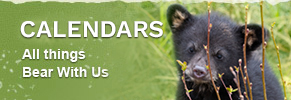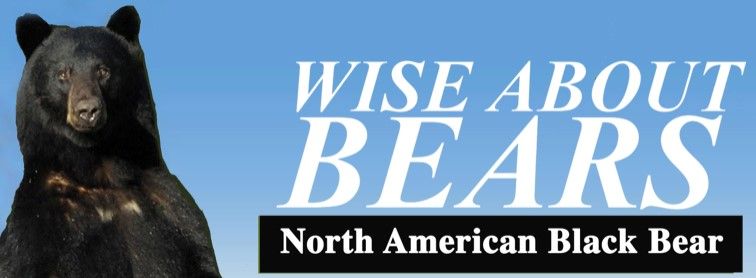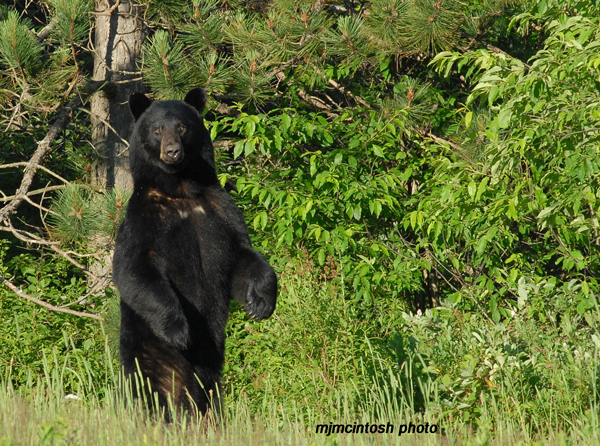
The black bear:
-Very intelligent mammal. Intelligence rivals that of the great apes.
-Extremely acute sense of smell. Scent oriented mammal.
-Good eyesight, similar to humans, bears see colour.
-Cubs stay with mother for minimum 1.5 years.
-Cubs learn by following mother, mimicking her actions and activities.
A bear is an omnivore, however it is classified as a carnivore, yet the black bear is primarily a vegetarian.
Large male black bears can weigh over 227kg (500 lbs). Females weigh up to 100kg, often less, occasionally more. Bears reach their full size at an age of 10 to 12 years (males), about 8 for females. Females reach sexual maturity between 5 and 7 years. Exceptions are documented.
A bear rarely dies of old age because of human activity. An old bear in the wild is 20 years old. If humans did not interfere many bears could conceivably live to 30, sometimes 40 years.
Living and Recreating in Bear Country:
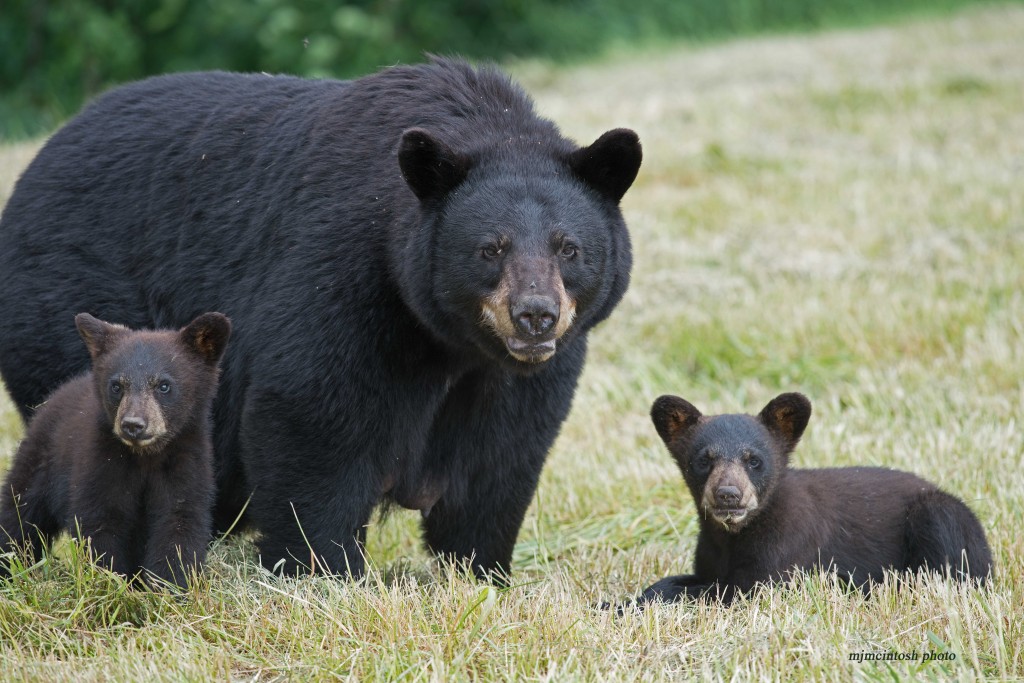
When you live, camp, hike or walk your dog in a woods where there are bears you have little to worry about pertaining to the bears. The reality is you are safer in the woods compared to a place you may be where there are many people. Bears need not be a concern, just remember to follow some simple rules.
Your Home:
1-When the grass turns green put bird feeders away until the snow turns the ground white again.
2-Do not put meat products in compost, no eggs.
3-Secure food garbage in an area away from the house. Put garbage out for pick up the morning of scheduled pick up. If in rural area take garbage to waste disposal on a regular basis.
Camping and Recreating:
1-Keep your food out of your tent and out of reach of a bear.
2-When hiking, ensure you do not surprise a bear by making noise such as singing or humming etc.
3-If you have your dog(s) with you keep your dog(s) on a leash.
Bears usually run from a dog because most bears have learned to associate dogs with people. However, a dog off leash may chase and harass the bear causing the bear to get angry and chase the dog. When dogs get scared they may run to their owner.
4-If you hike or camp often you may want to consider purchasing some pepper spray. Pepper spray may make you feel more at ease and it is very effective in the unlikely case it is needed.
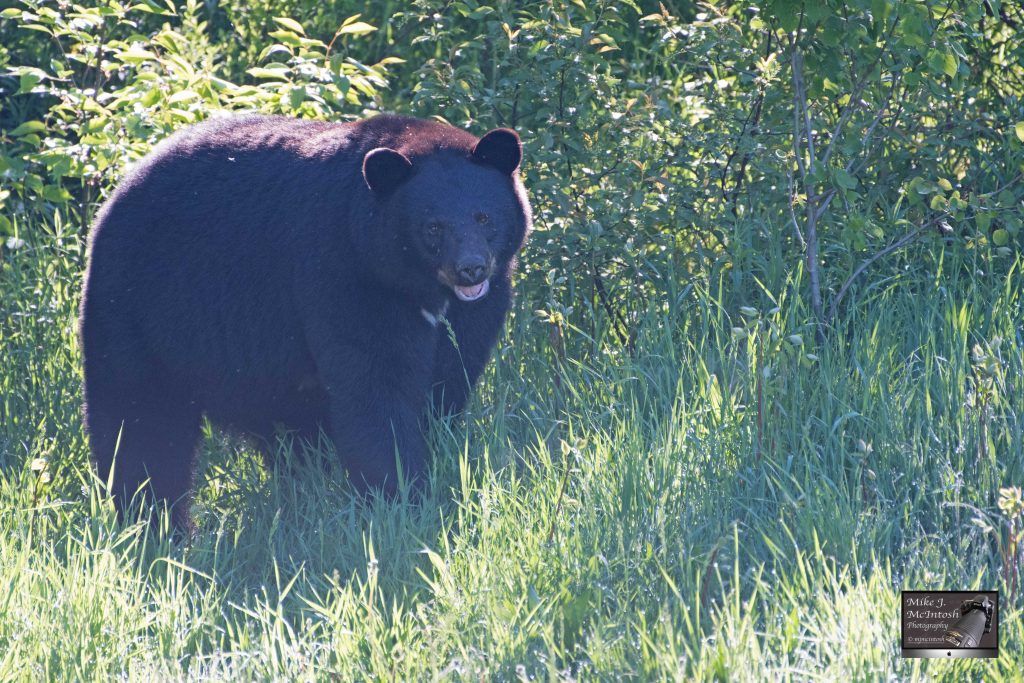
Bears come around people when there is food available. Bears do not consider people food. Bears that are accustomed to being around people and human establishment historically have not attacked people. A bear may get used to the activity of people in a certain area and therefore appear complacent possibly because the bear does not fear harm from the people. Although it is possible for an individual bear to become assertive when accessing people’s food in garbage or bird feeders there is no record of an all out attack from a bear behaving in this way.
Many times a bear’s nervousness is misread as aggression. When a bear clacks it teeth, exhales heavily through its nose, slaps the ground with its paws, the bear is “asking” the person to leave or give it more space. Rarely does this kind of behavior from a bear result in an injury to a person.
Resources:
Learn more about all aspects of bear behavior and about the black bear in general at Be Wise About Bears. Information regarding the work of the Bear With Us Sanctuary and Rehabilitation Centre for Bears is available at Bear With Us Sanctuary and Rehabilitation Centre for Bears
More information about the black bear can be found at the Ontario Government website for the Ontario Ministry of Natural Resources and Forestry/Bear Wise. Bear Wise: Bear Wise / MNRF
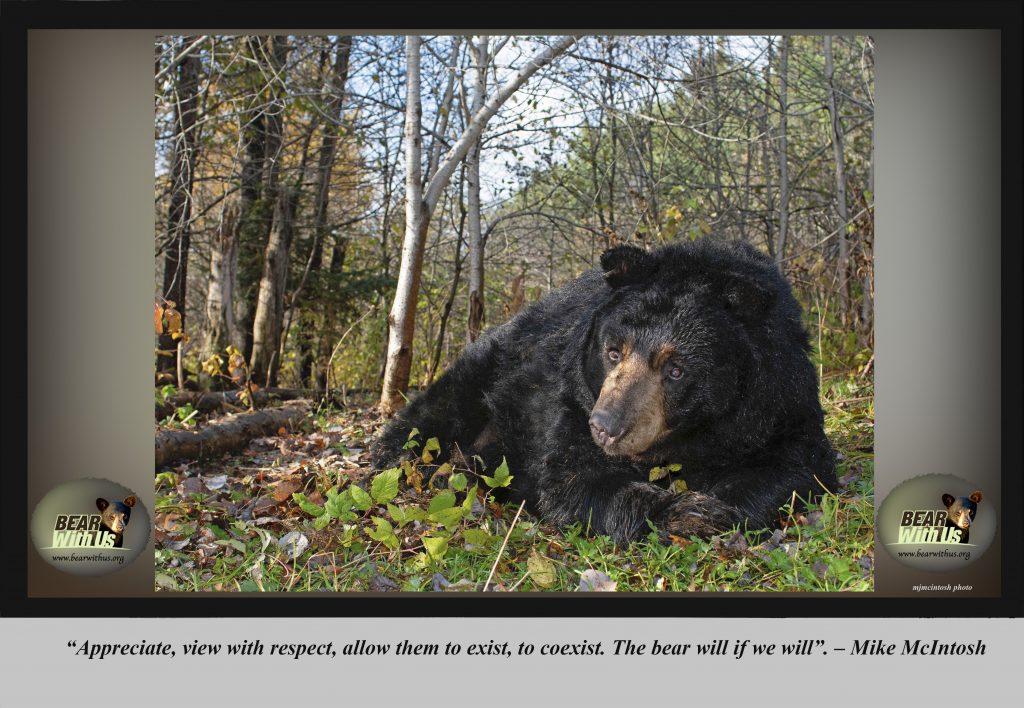
© Bear With Us Inc./Mike J McIntosh

